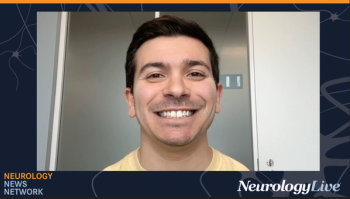
Impact of Music Therapy on Alzheimer Symptoms
Medications to treat dementia can improve behavioral symptoms, but have risks. Music therapy, however, offers a low-cost, nonpharmacological option.
Personalized music therapy may help decrease antipsychotic and anxiolytic medication use, and improve dementia symptoms in individuals with Alzheimer disease and related dementias (ADRD).
Results were published online in the American Journal of Geriatric Psychiatry.
“Results from this study offer the first evidence that the M&M [Music and Memory] individualized music program may be associated with reductions in antipsychotic and anxiolytic medication use as well as improvement in behavioral and psychological symptoms of dementia among nursing home residents with ADRD,” wrote first author Kali Thomas, PhD, MA, of Brown University School of Public Health, (Providence, RI), and colleagues.
The study is also the largest so far to evaluate individualized music therapy in this setting.
The prevalence of Alzheimer disease and related dementias in increasing, and will affect an estimated 7.1 million Americans by 2025. Currently about half of individuals with ADRD live in nursing homes, according to background information in the article.
Antipsychotics and other psychoactive medications used to treat dementia can improve behavioral symptoms, but are not without risks. Music therapy, however, offers a low-cost, nonpharmacological option for treating behavioral symptoms. Past studies have suggested music therapy may decrease agitation, aggression, anxiety, and improve mood.
One such program is M&M, which was featured in the 2014 award-winning documentary Alive Inside. In that film, nursing home residents with dementia showed dramatic improvements in singing, moving, and social engagement after listening to their favorite music. The program is simple: it provides residents with listening devices like iPods and personalized music playlists based on their personal histories and music preferences. Popularity of the program is growing, with M&M nursing home projects in twelve states and four state-sponsored projects in California, Ohio, Texas, and Wisconsin. However, its efficacy has yet to be established by medical research.
To evaluate the benefits of M&M, researchers compared six-month outcomes in long-stay residents of 98 nursing homes that participated in the M&M program (n=12,905), to pair-matched residents of 98 facilities that did not participate (n=12,811). Training for the program took place in 2013. Data about nursing home residents’ diagnoses, treatments, symptoms, and medications came from the Minimum Data Set (MDS).
Key Results over 6 months:
• Antipsychotic discontinuation:
♦ M&M facilities: Increased from 17.6% pre-intervention to 20.1% during intervention
♦ Comparison facilities: Remained about the same (15.9% before to 15.2% during)
• Anxiolytic discontinuation:
♦ M&M facilities: Increased from 23.5% pre-intervention to 25.4% during intervention
♦ Comparison facilities: Decreased from 24.8% pre-intervention to 20.0% during intervention
• Behavioral and psychological symptoms of dementia:
♦ M&M facilities: Rates of improvement increased from 50.9% pre-intervention to 56.5% during intervention
♦ Comparison facilities: Rates stayed about the same (55.8% before to 55.9% during)
• Depressed mood: stayed about the same in both facilities
The authors noted several limitations, including the study’s retrospective, non-randomized design. Also, the study assumed that the M&M program lasted for all of 2013 and all long-stay residents with dementia received iPods, which may have weakened the results. Participation in the M&M program was voluntary, and facilities that chose to participate may have had more interest in care improvement or innovative practices than facilities that did not.
Finally, the study could not tease out which features of the M&M program were most effective. Factors such as selection of residents for the program and how often residents can access iPods could play a role in the success of the program.
Nevertheless, the authors concluded: “Although more insight is required to understand which residents are most likely to benefit from this particular music therapy program and what improvement they experience, our findings signal that in the aggregate, the M&M program is associated with improvement in the experience of care provided to residents with ADRD in nursing homes.”
Take-home Points
• The largest study of its kind has provided the first evidence that the M&M [Music and Memory] individualized music program may help decrease antipsychotic and anxiolytic use, and improve behavioral and psychological symptoms of dementia among long-stay nursing home residents with ADRD.
• M&M provides residents with listening devices like iPods and personalized music playlists based on their personal histories and music preferences.
• More research is needed to identify which individuals may benefit most from the program and the types of improvements they are likely to experience.
Author Vincent Mor is a founder and on the board of directors of PointRight, Inc., an information services company serving nursing homes on quality measurement and improvement. He also reports owning stock in PointRight, Inc., and Navi Health, as well as honoraria from the Alliance for Health Care Quality.
Reference: Thomas KS, et al.
Newsletter
Keep your finger on the pulse of neurology—subscribe to NeurologyLive for expert interviews, new data, and breakthrough treatment updates.










